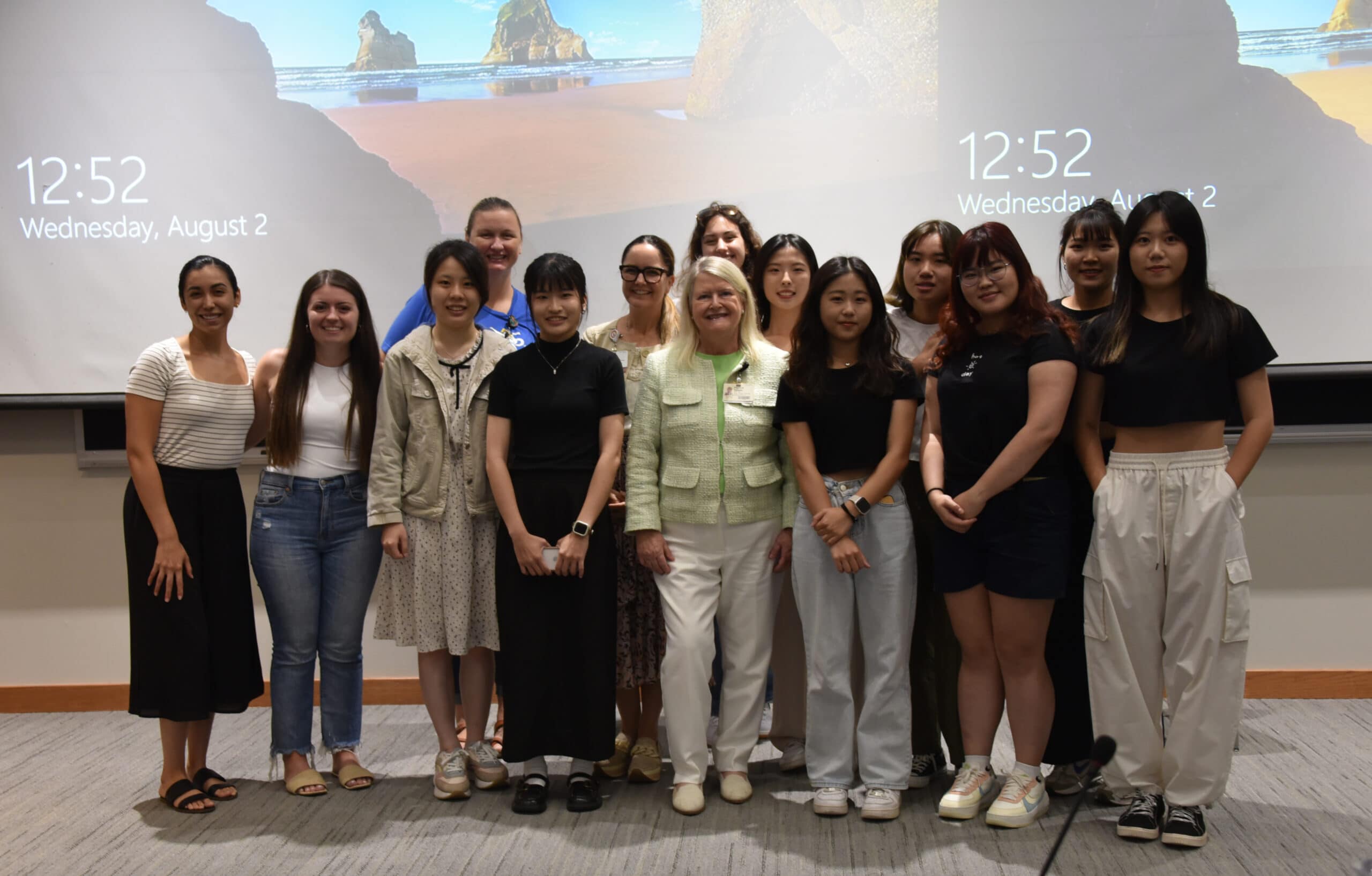UAMS College of Nursing Welcomes Taiwanese Exchange Students
| Eight nursing students and a faculty member from Taiwan’s Kaohsiung Medical University came to central Arkansas in July for a month of educational and cultural opportunities under an exchange program with the University of Arkansas for Medical Sciences (UAMS).
This year’s visit marked a resumption of the exchange program after a three-year pause during the COVID-19 pandemic. The program began in 2012 when students from the UAMS College of Pharmacy visited the university in Taiwan, and it expanded to include nursing students in 2017.
The UAMS College of Nursing hosted the Taiwanese students, helping them gain insight into American medical practices through tours of the 12th Street Health & Wellness Center, UAMS Medical Center and Arkansas Children’s. They also attended lectures from experts on advanced practice care, end-of-life care and smoking cessation.
Nursing student Jung-Hsuan Chang said their trip to the 12th Street center was particularly interesting.
“I really liked this experience because we don’t have these kinds of clinics in Taiwan,” she said.
She noted that students in Taiwan can only perform medical activities in hospitals, which limits their opportunities to gain hands-on experience before they graduate.
“Here in the United States, students can solve problems and have discussions with their professors,” she said. “I think this can promote skills in communication and consultation.”
The students also spent time at the College of Nursing’s Innovative Practice and Simulation Center, where they watched as UAMS students conducted a simulation that involved evaluating, diagnosing and planning for the treatment of a patient. Chang said Taiwanese medical schools offer simulation courses, but those focus on how to handle disasters and crisis events.
When they weren’t in the classroom or touring medical facilities, the students took time to learn about the history and culture of the United States. This included visits to the Clinton Presidential Center, the Museum of Fine Arts and the Little Rock Central High School National Historic Site. Chun-Ling Hung described the Central High site as one of the most important experiences of her time in the U.S., noting that it made her think about disparities in the ways people are treated.
Hung said it was an honor to participate in the exchange program and to see the differences between Eastern and Western customs, particularly in medical settings.
“In Taiwan’s hospitals, doctors usually speak loudest,” she said, adding that nurses often struggle to make their voices heard. “In the UAMS hospital, everyone will listen to your opinions.”
The students returned earlier this month to Kaohsiung Medical University, where they’ll be joined in November by five students from the College of Nursing. The UAMS students will tour Taiwanese health units and visit underserved areas to learn about how medical care is provided to those populations.
“This program is meant to work both ways,” said Natalie Capps, Ph.D., MNSc, clinical assistant professor in the College of Nursing. “The students visiting UAMS gain insights into health care and nursing roles in the United States, and our students learn about Taiwanese nursing practices and Eastern medicine. It’s about taking the best pieces of each country’s system so we can use what works best.”
After spending time this summer with their Taiwanese counterparts, the UAMS students said they’re looking forward to their own trip abroad.
“We haven’t been able to do this exchange program for a few years because of COVID, so we didn’t get to talk to other students who have already been there,” said Nadia Albonetti, a student in the Bachelor of Science in Nursing (BSN) program. “We really want to experience the Taiwanese culture and learn from their approach to health care.”
KatyBeth Coleman, a BSN student, echoed that sentiment, noting the learning opportunities they’ll receive during their monthlong visit.
“I’m excited to see the differences — and similarities — in nursing between the United States and Taiwan,” she said.
